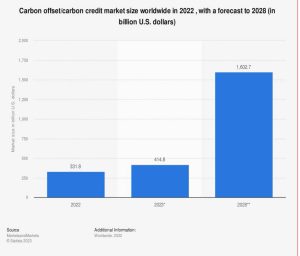

AUTHORITIES should develop comprehensive climate legislative frameworks to enable Zimbabwe to tap into global climate financing sources such as green bonds and carbon credits, experts have said.
Zimbabwe currently has a climate financing gap of between US$500 million, limiting the southern African country’s ability to build climate resilience, according to the African Development Bank.
This week, experts said comprehensive climate legislative frameworks should be complemented by the development of the market for the issuance of green bonds underpinned by a conducive macroeconomic environment.
Tinashe Mashavave, principal economist in the ministry of Finance, said the issuance of green bonds and effective regulation of carbon trading in the country can provide a mechanism to attract financial resources and promote sustainable development.

“We still need the legal framework for the green bonds,” Mashavave said at the Zimbabwe Economic Development Conference.
“Given that the legal framework for carbon trading has been promulgated in Zimbabwe, there is need to promote, build capacity and raise awareness of carbon credit trading.
“Zimbabwe can utilise carbon credits to access the necessary funds to implement climate change adaptation and mitigation projects.
“The close regulation of carbon trading is critical to prevent greenwashing and ensure that the benefits of carbon credits flow to local communities,” he added.
Recently, the government gazetted the Carbon Credits Trading Regulations to provide for the control and management of carbon credit trading projects in the country.
Voluntary carbon credit projects were being implemented in Zimbabwe in the absence of a clear legislative framework.
The major carbon credit projects in Zimbabwe included Kariba REDD+ and the cookstoves projects being implemented by a number of proponents.
Joyce Chuma, an independent researcher, said there is a need to create carbon cooperatives to accelerate the growth of the carbon market.
“Suppose government can fund 25 percent with the rest being raised privately by the cooperative to develop a high-priority carbon development project,” Chuma said.
“We need legislation to have the voluntary carbon market within the Victoria Falls International Financial Services Centre. This is the most appropriate for the financial institutions we have in Zimbabwe but for them to operate they cannot do so without any regulation protecting them. For instance, when we want to talk about legal issues, what is a carbon credit, is it a tradable instrument, and how do you classify it legally? We need to make those provisions.
“I propose that government puts a lower tax rate for carbon developers largely because Victoria Falls itself is a special economic zone – it’s a motivating factor. Provisions can be made in the income tax with a tax rate significantly lower than the 24,72 percent carbon trading tax incentive to companies operating in the carbon market and certified by the Victoria Falls International Financial Services Centre,” she added.
According to the Statutory Instrument on carbon trading, all past agreements signed with international agencies and organisations are now null and void.
Zimbabwe developed a Carbon Credit Framework in February 2023 to trade in carbon under the Paris Agreement and voluntary market following global concerns on the need to promote transparency, enhance community benefits and the credibility of carbon credit projects.
Under the new framework, the government will take 50 percent of all revenue from carbon projects, with foreign investors limited to 30 percent and the balance of 20 percent will go to local communities.
The framework seeks to promote, institutionalise and regulate the trade in carbon on both the compliance market under the Paris Agreement and the voluntary market governed by independent bodies.
“Carbon markets have the potential to provide climate finance and technology required to mitigate and adapt to climate change as multilateral and bilateral climate finance flows into Zimbabwe continue to fall far short of what is required to implement the nationally determined contribution and adaptation priority actions,” the Minister of Environment and Climate, Mangaliso Ndlovu, said in the framework.
The regulations provide for the legal framework necessary for ensuring sustainable development and account for the country’s contribution towards global efforts to reduce or remove greenhouse gas emissions.
The Zimbabwe Environmental Law Association (Zela) said regulation brings certainty and order in the carbon credits sector.
“There is public interest involved in carbon trading as it affects Zimbabwe’s commitments to reducing greenhouse gas emissions under the Paris Agreement and credits that are traded out of Zimbabwe for the benefit of other countries under the compliance regime,” Zela said in an analysis to the carbon credits framework.
“It would also be progressive if the law compels the designated national authority to publish details of carbon credits issued and traded in much the same way that the minister of Finance is legally obliged to publish details of borrowings by the government. It ensures transparency and accountability.”
Africa Voluntary Carbon Credits Market chairman, Kwanele Hlabangana, said his organisation will facilitate the trade of carbon credits on the pan-African focused register of carbon credits to be traded on the Victoria Falls Stock Exchange.
“It is indeed Africa’s time to lead the way and fully participate in the global climate economy as an equal partner. It is, therefore, critical that we leverage on the momentum by taking steps towards implementing and driving the campaign to the rest of the African continent,” he told this publication recently.
Last week a Dubai-based company, Blue Carbon, inked a deal with Zimbabwe to create carbon credits from offsetting projects in the African country involving almost a fifth of its total land mass.
The two parties signed a memorandum of understanding worth US$1,5 billion to fund forest protection and rehabilitation projects. The carbon sequestered of the forests will generate the corresponding amount of carbon credits.